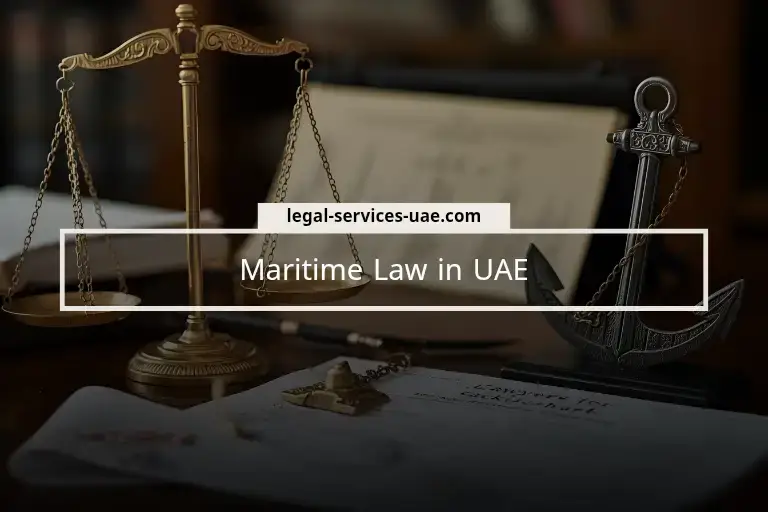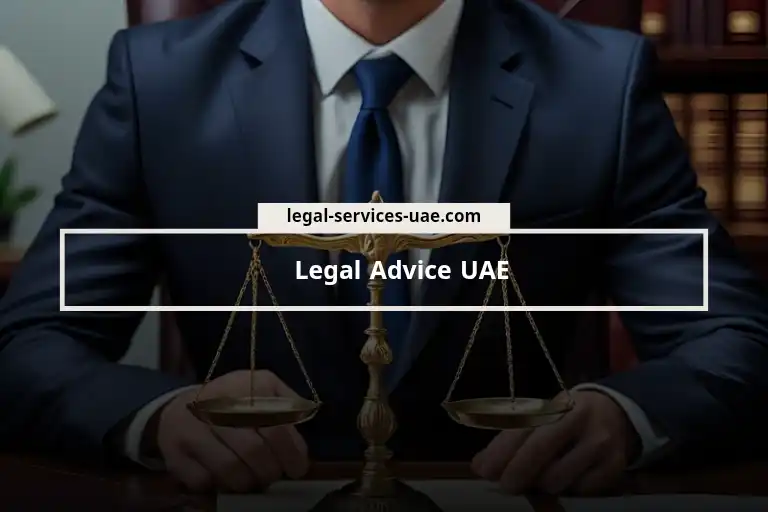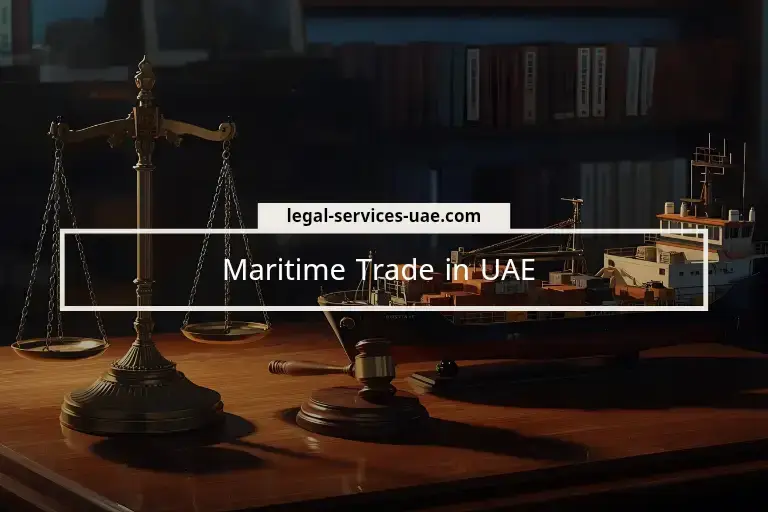In recent years, the rapid growth of maritime trade in UAE has positioned the country as a strategic nexus connecting Europe, Asia, and Africa. A compelling case illustrates this: a bulk carrier transporting construction materials to Dubai faced vessel detention at Jebel Ali Port due to an unpaid demurrage claim. The shipowner, unaware of the local legal procedures, suffered financial losses until local counsel intervened. This underscores the critical importance of understanding Maritime Law in UAE, especially as the region’s maritime activity surges.
If you are currently facing a maritime-related issue—be it a cargo dispute, crew employment conflict, or vessel arrest—our legal team can provide expert, tailored advice.
Need a confidential legal consultation with a licensed maritime lawyer? Click on the WhatsApp icon below.
فهرس المقال
Core legal frameworks governing UAE maritime law
The core foundation of Maritime Law in UAE is established by a robust combination of federal and local statutes, with strong ties to international maritime conventions. The primary sources include:
Federal Law No. 43 of 2023 (UAE Maritime Code)
This is the cornerstone legislation regulating all maritime activities, from ship registration and mortgage to contracts of carriage and liability for collision and pollution. It sets out rights and obligations for shipowners, charterers, insurers, and maritime workers.
Federal Law No. 33 of 2021
(Regulating Labor Relations): These define employment rights, working hours, and dispute mechanisms for maritime crews.
Dubai Maritime Authority (DMA)
This body plays a crucial regulatory role within Dubai, issuing licenses, conducting safety inspections, and ensuring compliance with international maritime standards.
International conventions
The UAE is a signatory to multiple international agreements, including the International Convention for the Safety of Life at Sea (SOLAS), MARPOL, and others, thereby aligning local practices with global norms.
This comprehensive legal infrastructure enhances the UAE’s attractiveness for global shipping operators and ensures legal predictability.
Key Areas of Maritime Law in UAE
The legal field of maritime law in the UAE spans several key domains, each vital to the operational integrity of the maritime sector:
- Ship Registration and Ownership: Governed by the UAE Maritime Code, vessel registration is a prerequisite for operating within UAE waters. The process involves documentation of ownership, vessel specifications, and classification.
- Maritime Contracts: These include charterparties (time and voyage), contracts of affreightment, and bills of lading. Each contract defines terms for carriage, payment, risk allocation, and liability.
- Marine Insurance: The law mandates coverage for hull damage, cargo insurance, and protection & indemnity (P&I) insurance. Disputes often arise over insurance claims following collisions or loss of cargo.
- Crew Employment and Welfare: Employment terms for maritime workers are strictly regulated, covering wages, working hours, repatriation rights, and health insurance. Non-compliance can result in severe penalties.
- Maritime Safety and Environmental Protection: Rules regulate vessel emissions, waste discharge, ballast water treatment, and emergency protocols in case of oil spills. Non-compliance can lead to vessel detention and administrative fines.
A well-qualified maritime lawyer in Dubai can navigate these complex legal areas, ensuring compliance and contract enforceability.
Maritime Dispute Resolution in UAE
The UAE’s dispute resolution framework for maritime issues is both diverse and business-friendly, offering:
- National Courts: Maritime disputes are typically handled by specialized commercial divisions within civil courts. These courts are well-versed in applying the UAE Maritime Code and related laws to disputes over cargo claims, charterparty breaches, collisions, and salvage operations.
- Arbitration: Often preferred in complex shipping cases, arbitration is available through DIFC-LCIA and the Emirates Maritime Arbitration Centre (EMAC). Arbitration clauses are commonly embedded in maritime contracts to ensure neutral and confidential resolution.
- Mediation: Promoted by maritime regulators and chambers of commerce, mediation offers a cost-effective and time-efficient path to settlement. It is particularly effective in crew disputes and insurance claims.
Having local representation is critical. UAE courts may require translation of documents, notarization, and adherence to local procedural rules—an experienced maritime lawyer can make the difference between success and dismissal.
Unique Aspects of UAE Maritime Law
Several features make Maritime Law in UAE distinct from other jurisdictions:
Specialized Court Procedures
Some emirates, particularly Dubai and Abu Dhabi, have dedicated commercial benches or procedures tailored for maritime claims. These may include expedited hearings or dedicated case managers.
Ship Arrest Without Notice
One of the most powerful tools available to creditors is the ability to request ship arrest without prior notice to the defendant. The procedure is detailed in the UAE Maritime Code and provides swift relief to unpaid suppliers, injured parties, or financiers.
Integration with Customs and Port Laws
Maritime law frequently intersects with port regulations, especially during import/export declarations, customs clearance, and cargo inspections. The Dubai Maritime Authority and Dubai Customs often collaborate in regulating ship arrivals and cargo handling.
Absence of Precedent Doctrine
While courts may refer to past rulings, there is no binding precedent in the UAE. Each maritime case is decided based on the facts and the judge’s interpretation of the Maritime Code.
Such unique attributes enhance the legal efficiency of maritime trade in UAE, while also requiring expert navigation to avoid missteps.
Common Maritime Legal Challenges in UAE
Despite a sound legal framework, several recurring legal issues pose challenges for maritime operators in the UAE:
- Cargo Claims: These include physical damage, delay in delivery, or total loss of goods. Establishing liability can involve complex forensic and contractual analyses.
- Demurrage and Detention Charges: Disputes often arise over late unloading, leading to financial claims against charterers or shippers.
- Crew Repatriation and Compensation: When employment contracts are breached or injuries occur onboard, crew members may file claims under the UAE Labour Law or Maritime Code.
- Pollution Liability: Oil spills and other environmental damage are heavily penalized. Operators must comply with MARPOL standards and local environmental laws.
- Recognition of Foreign Judgments: Many shipping disputes originate in foreign ports. Enforcing these judgments in the UAE involves navigating both international treaties and local procedures.
For such multifaceted disputes, working with a maritime lawyer in Dubai provides a strategic advantage.
FAQ
The UAE’s strategic coastal location, advanced port infrastructure, and investor-friendly environment have made it a regional powerhouse in shipping and logistics. However, these advantages come with legal complexities that necessitate a clear understanding of the Maritime Law in UAE. From port compliance and shipping contracts to crew disputes and ship arrest, the legal landscape is highly specialized.
Engaging an experienced maritime lawyer in Dubai ensures that your operations remain compliant and protected. Whether you are a shipping line, insurer, port agent, or cargo owner, our legal team can guide you through the UAE’s maritime legal waters.
Looking for clear, experienced guidance on Maritime Law in UAE? Contact us via the WhatsApp button below to get in touch with our expert lawyer in UAE today.
Disclaimer: The information provided in this article is for educational purposes only and does not constitute legal advice. For professional guidance, please consult a licensed lawyer in the UAE.
Legal Sources:
- Federal Law No. 26 of 1981 (UAE Maritime Code).
- Federal Law No. 8 of 1980 (UAE Labour Law).
Was this helpful?
Specialized Legal Content Writer, possessing deep legal knowledge and exceptional ability to demystify legislation and analyze judicial developments. He delivers clear, precise content that helps you understand your legal rights and obligations while empowering you to make informed decisions across diverse legal domains. Working within our expert legal team, he ensures credibility and trustworthiness in every piece of content.





Trying my luck with 5hbetentrar! Registration was smooth. Let’s see if the wins are just as easy! Have a look: 5hbetentrar
Got the 88vin.link tải download from m36588vin.com. Installation was easy, and I started playing right away. Seems like a solid option for those looking for Vietnamese games to play . Check it out here 88vin.link tải
Testing the waters with vn888game. It’s not bad, I spent a fair bit of time there. Worth a look for new players specifically. Check it: vn888game!
Jaiho Arcade APK, eh? If you’re looking for some old-school arcade action on your phone, this is probably what you’re after. Download was smooth, and the games are pretty fun for a quick fix. Download for a good time here: jaihoarcadeapk.
Yo, bj39thomo! Just checked it out. Pretty smooth experience, not gonna lie. Definitely worth a look if you’re in the market I’d say. Get your game on bj39thomo!
Alright, alright, alright! Tai88aa huh? Gave it a whirl and seems legit. Interface is clean which I always appreciate. Check it and see what you think tai88aa!
Do888login, eh? Easy peasy to get logged in, no dramas. They’ve got a good thing going on over there. Definitely worth a look-see do888login!
jililph https://www.jililphu.org
[3219]MNL63 Online Casino: The Best Philippines Slot Games. Easy MNL63 Login, Register & App Download for Big Wins! Experience the ultimate gaming at MNL63 Online Casino, the top destination for the best Philippines slot games. Enjoy a seamless mnl63 login, quick mnl63 register, and easy mnl63 app download to start playing today. Explore a wide variety of mnl63 slot titles and secure your chance for big wins at the most trusted online casino in the Philippines! visit: mnl63